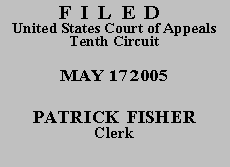

| RONALD L. CALVERT,
Plaintiff-Appellant, v. ROADWAY EXPRESS INC., Defendant-Appellee. |
|
Plaintiff-appellant Ronald L. Calvert, appearing pro se, appeals from the magistrate judge's grant of summary judgment to defendant-appellee Roadway Express Inc. on his claims of race discrimination and retaliation under Title VII, 42 U.S.C. §§ 2000e to 2000e-17, and disability discrimination under the Americans with Disabilities Act, 42 U.S.C. §§ 12101-12213. We have jurisdiction under 28 U.S.C. § 1291.
The case was decided by Magistrate Judge Boyd N. Boland by consent of the parties. See 28 U.S.C. § 636(c)(1); R. doc. 62. Appellant does not challenge the magistrate judge's decision to grant summary judgment to appellee. We will neither manufacture arguments for a party nor sift through the record to find support for a party's arguments. Sil-Flo, Inc. v. SFHC, Inc., 917 F.2d 1507, 1513 (10th Cir. 1990). We therefore affirm, without discussion, the magistrate judge's decision to grant summary judgment to appellee.
Appellant raises three issues on appeal. First, appellant argues that defense counsel James J. Gonzales should be removed from the case because he allegedly obtained certain documents in violation of the Health Insurance Portability and Accountability Act of 1996 (HIPAA), Pub. L. 104-191, 110 Stat. 2087-2088, and used them at appellant's deposition in another case on April 5, 2001. Next, appellant argues that Magistrate Judge Boland should be recused because he allegedly remarked to Mr. Gonzales at a hearing on June 24, 2003: "you might want to check on a criminal record while you're at it," allegedly implying that appellant had a criminal record. Aplt. Br. at 2. Finally, appellant argues that a discovery protective order should be dismissed without prejudice because it prevented him from obtaining documents relevant to his discrimination claim.
Appellant's challenge to the discovery of certain medical records used at his deposition in another case in 2001 is without merit. Appellant concedes that the deposition was in another case, appellant fails to demonstrate that the documents were not lawfully in appellee's possession at that time, and appellant has not shown that HIPAA applied at that time, see 45 C.F.R. § 164.534.
We also reject appellant's challenge to Magistrate Judge Boland's participation in this case. Appellee provided transcripts from the June 24, 2003 and November 4, 2003 hearings at which appellant's medical records were discussed. The transcripts show that Magistrate Judge Boland did not make the remark at either hearing that appellant attributes to him. See Aplee. App. at 1-15, 16-48. Thus, there is no evidence of bias to support recusal.
Finally, we reject appellant's challenge to the discovery protective order because he failed to comply with Fed. R. Civ. P. 56(f). "Where a movant has met the initial burden required for a grant of summary judgment, the opposing party must either establish the existence of a triable issue of fact under Fed. R. Civ. P. 56(e) or explain why he cannot present facts to justify his opposition under Rule 56(f)." Pasternak v. Lear Petroleum Exploration, Inc., 790 F.2d 828, 832 (10th Cir. 1986). Thus, when appellee moved for summary judgment, appellant was required to object to the alleged obstacle to discovery under Rule 56(f) in the district court, rather than to wait to raise it on appeal as a challenge to the grant of summary judgment. See id. at 832-33. Because appellant did not do so, we will not disturb the magistrate judge's ruling. See id. at 833.
AFFIRMED.
Entered for the Court
Circuit Judge
*. This order and judgment is not binding precedent, except under the doctrines of law of the case, res judicata, and collateral estoppel. The court generally disfavors the citation of orders and judgments; nevertheless, an order and judgment may be cited under the terms and conditions of 10th Cir. R. 36.3.